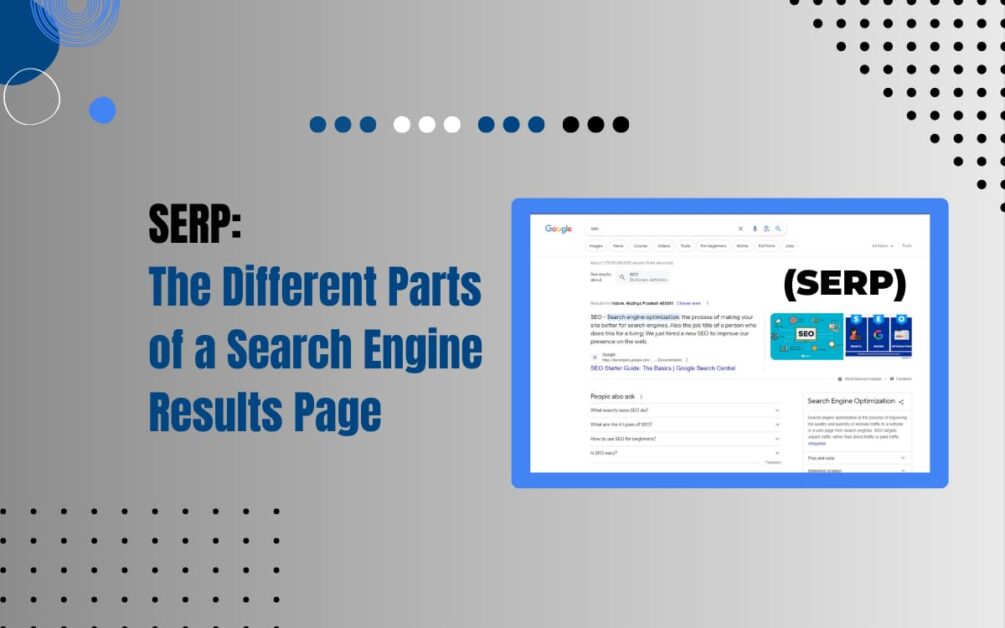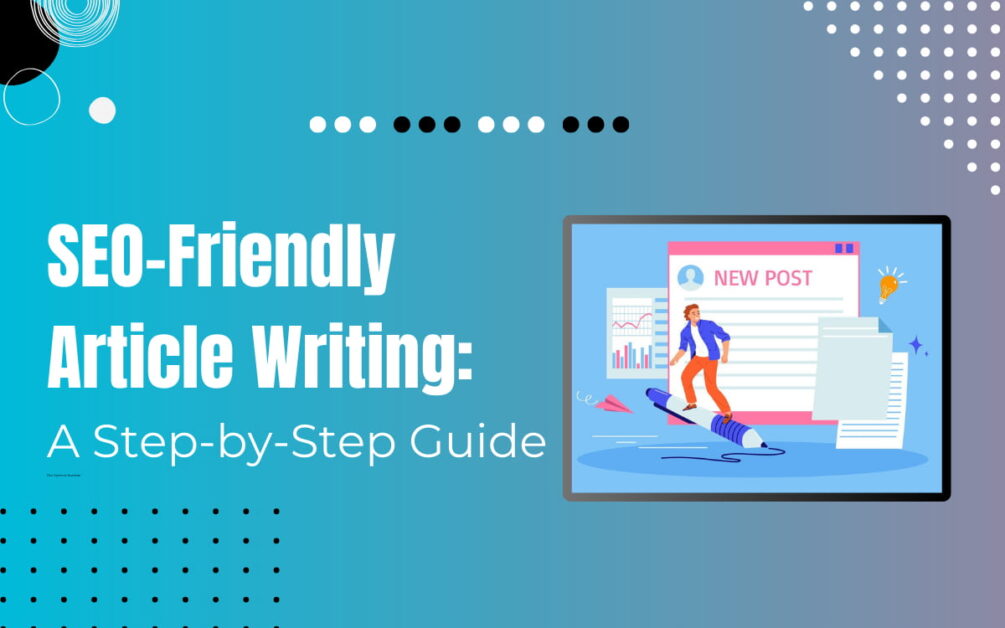Reading Time: 5 mins 4 sec
In this article, we will discuss, how to optimize content for Google search engine.

In briefs,
- Content for Generative AI and Perspectives
- The Importance of User and Third-Party Reviews
- Adding Perspectives to Travel Content
- Adding Perspectives to Ecommerce Content
- Incorporating Varying Viewpoints for Better SEO Results
The launch of Perspectives by Google has presented a challenge for content creators to elevate their content production strategies.
This step aligns with Google’s emphasis on prioritizing user-focused content over keyword-driven content.
In the current landscape, most SEO content primarily focuses on keywords, aiming to bridge content gaps and achieve higher rankings on search engines.
However, with Perspectives, Google emphasizes the importance of fresh, original viewpoints tailored to individuals rather than solely optimized content.
This shift necessitates a change in the content production mindset, inspiring the creation of SERP features that reward content diversity and engagement.
In this article, we’ll look at how infusing distinctive points of view into your content may produce vibrant, trustworthy environments that encourage client conversion and loyalty.
We’ll look into the importance of generative AI, the function of user reviews, and techniques for giving travel and e-commerce content fresh perspectives.
So let’s get started
Read This: How To Create Robots.Txt File In SEO
How To Optimize Content For Google Search Engine
1. Content for Generative AI and Perspectives
To fully understand the implications of Perspectives, it is crucial to discuss the types of content that can be cited in a Search Generative Experience (SGE) result.
Google’s SGE appears to source responses from multiple trusted sources, indicating the importance of supported consensus online to determine the accuracy of an answer.
However, Perspectives may not align with mainstream consensus or adhere to the format required for presentation alongside other cited sources in an SGE response.
Despite this, Google’s approach to AI-generated content remains closely related to general content guidelines, such as page quality and meeting user needs.
Google’s inclination to surface hidden gems and non-traditional sources reflects the May 2023 Helpful Content Update.
Content creators and SEOs should adapt their strategies by:
- Ensuring a strong value proposition and emphasizing expertise, authoritativeness, and trustworthiness (E-A-T).
- Incorporating unique perspectives without duplicating existing online content.
- Staying informed through reliable sources and industry newsletters.
Read This: How To Troubleshoot Canonical Tag Issues For SEO
2. The Importance of User and Third-Party Reviews
User reviews and third-party product reviews have long played a crucial role in the online landscape.
Google has significantly improved its ability to understand sentiment and topics within user reviews, particularly on Google Business Profiles.
The search engine now includes review elements within generative search results for relevant queries.
For example, when searching for the “best bags for hiking,” Google presents reviews and third-party considerations related to features like sleeping bag compartments, side accessibility, and product waterproofing.
Google’s ability to pull in product reviews from various sources highlights the need to manage your online presence effectively as part of your SEO strategy.
As an SEO professional, this presents an opportunity to collaborate with product and content teams to ensure users can accurately anticipate their experiences and engagements with your brand.
By providing transparent perspectives through reviews, you enable potential customers to make informed decisions, reducing the likelihood of disappointment and negative reviews.
Read This: 7 Off-Page SEO Strategies For E-Commerce Websites
3. Adding Perspectives to Travel Content
Enriching your travel content with unique perspectives involves showcasing the distinctive elements of personal experiences and presenting them in a way that resonates with your audience.
To achieve this:
- Go beyond surface-level descriptions and explore the emotions and sensations associated with your travels.
- Incorporate sensory details that evoke a deeper connection with your readers.
- Address practical perspectives, such as suitability for families, couples, or individuals with sensory issues, highlighting factors like accessibility and crowd levels.
You can source these perspectives from blog posts, user reviews, and testimonials related to specific destinations and travel products.
Instead of relying solely on keyword research or third-party tools, prioritize user feedback and research to ensure your content provides valuable and relatable insights.
This approach can also be applied to accommodation listings on platforms like Vrbo and Airbnb.
For example, if you position your offering as family-friendly, emphasize features that matter to parents, such as proximity to roads or the availability of safety measures like guardrails and baby gates.
Read This: How To Find High Volume Low Competition Keywords
4. Adding Perspectives to Ecommerce Content
Incorporating user perspectives and reviews into your e-commerce product pages significantly enhances the user experience and instills trust.
User reviews offer valuable insights into real-world performance, surpassing carefully curated product descriptions.
To leverage this:
- Allocate a dedicated section for customer reviews and ratings on your product pages.
- Encourage customers to share their experiences, including product usage and suggestions for improvement.
- Embrace user-generated content, such as customer-submitted pictures and videos depicting your products in use.
By displaying authentic and relatable content, potential customers can visualize how your products integrate into their lives, leading to increased conversion rates.
This approach fosters transparency, provides social proof, and addresses common questions or concerns, ensuring a positive purchasing experience.
Read This: How To Use Chat GPT-4 For Free
5. Incorporating Varying Viewpoints for Better SEO Results
Perspectives exemplify Google’s commitment to user-centric content, offering content creators a compelling reason to adopt a similar mindset.
By incorporating user perspectives and reviews, your web pages can transform into dynamic spaces that drive customer conversion and foster loyalty.
To achieve better SEO results, remember to:
- Prioritize unique perspectives and avoid duplicating existing content.
- Incorporate user feedback, research, and reviews to provide valuable insights.
- Encourage customers to share their experiences by engaging with them.
- Leverage user-generated content to showcase your products in real-life scenarios.
- Encourage interaction and a sense of community around your brand.
By utilizing these techniques, you can produce content that is captivating and impactful and outperforms the content on rival websites, enhancing your SEO performance and promoting long-term growth.
Read This: How Long Does It Take To Get Out Of Google Sandbox?
Conclusion
In this article, we will discuss, how to optimize content for Google search engines.
In the age of Google’s Perspectives and user-centric content, incorporating unique viewpoints into your content is essential for achieving SEO success.
By focusing on user experiences, leveraging user reviews, and adding perspectives to your travel and e-commerce content, you can create engaging spaces that drive customer conversion and loyalty.
Remember to prioritize authenticity, transparency, and community engagement to cultivate a lasting relationship with your audience.
With these strategies in place, your content will stand out, outrank competitors, and contribute to your long-term growth and optimization efforts.
If you like this article please share and comment.
Read Also
- Top 65 Technical SEO Interview Questions And Answers
- Does Bold Text Help SEO
- How To Create The Perfect H1 Tag For SEO
- Google Announces Five Changes Coming To Mobile Search
- Benefits Of Using Semrush
FAQ
How do you optimize content for search engines?
Work on your keyword research
Keep the user’s intent in mind
Writing for quality rather than quantity
Make a URL That Is Search-Friendly
Think about your meta description and title
Be wise with your headings.
Use a headword in the opening sentence.
Use relevant graphics and videos.
How does Google use search engine optimization?
For each query, search engines like Google utilize an algorithm or set of rules to decide which pages to display. To decide the rankings of their SERPs, these algorithms, which have become incredibly complicated over time, consider hundreds or even thousands of different ranking indicators.
What are the 4 types of SEO?
On-page SEO
Off-page SEO
Local SEO
Technical SEO
Can I do SEO for free?
Google. Despite the abundance of free SEO tools available, Google is unquestionably the most effective SEO tool. Google may be used for a range of SEO purposes. To connect your page with the search intent, for instance, you can use Google to determine what the intent is.
What are the key to content optimization?
Choose the right topics and keywords
conduct comparative analysis
Create comprehensive material and improve page title tags and URLs
Compose captivating meta descriptions
Add captivating images
Utilise internal linking
construct topic clusters
How do I optimize my SEO keywords?
Examine Your Present On-Page SEO
Look for keywords for your site
Avoid keyword stuffing
Adding keywords to your website.
Keep in Mind Your Target Audience
How SEO works step by step?
Look for keywords
Put keywords in the page title
Put keywords in the page’s URL
Put keywords in your meta description
Put keywords in your H1 text
Use keywords in the page’s content
Build links to your website
Track your ranking
How was your overall experience with SEOwithsunny?



